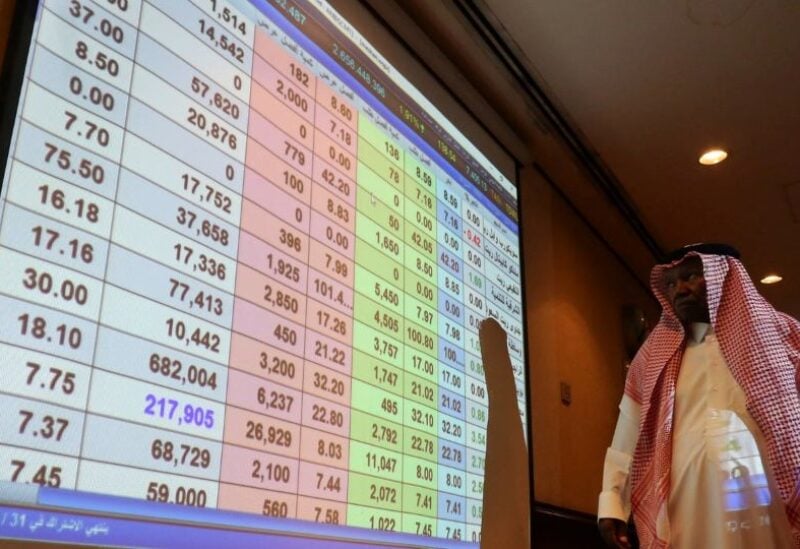
A Saudi man keeping an eye on a screen displaying stock market figures
According to a Reuters survey of analysts, the economies of the six-member Gulf Cooperation Council will expand at their quickest rates in many years, albeit the risk to that view is skewed to the negative.
Crude oil prices, a crucial driver for Gulf economy, rose to their highest level since 2014 on Wednesday, owing to increasing global political tensions involving major producers such as the United Arab Emirates and Russia, which might exacerbate already tight supply.
That is good news for the region’s six affluent oil-exporting countries.
According to a Jan. 11-19 survey of 25 economists, all six Gulf Cooperation Council economies will develop faster this year than was predicted three months ago.
Saudi Arabia was expected to lead the list with 5.7 percent growth, followed by Kuwait and the UAE with 5.3 percent and 4.8 percent growth, respectively.
Economic growth in Qatar, Oman, and Bahrain is predicted to range between 3% and 4% in 2022. If accomplished, it would be the finest thing any of these countries has seen in some years.
“Despite relatively restrictive fiscal policy and some external obstacles, we anticipate the GCC economies to expand faster in 2022 as they build on last year’s success,” said Khatija Haque, head of research and chief economist at Emirates NBD.
“While the view for 2022 remains essentially positive, there is still a considerable level of uncertainty, particularly regarding the evolution of the coronavirus pandemic.”
As the global economy struggles to deal with the likelihood of sustained inflation, the region’s pricing forecast was moderate but diverse.
Inflation is predicted to remain between 2.0 percent and 2.8 percent this year, with the UAE, Saudi Arabia, and Oman having the lowest readings at 2.0 percent and Qatar having the highest at 2.8 percent.
Saudi Arabia, the world’s top crude oil exporter and the region’s economic and political powerhouse, will enjoy 5.7 percent growth this year. It would be the fastest gain since 2012, when oil averaged approximately $111 per barrel.
Aside from an increase in the median expectation from the October Reuters survey, the range of projections indicated greater highs and lower lows.
Dependence on energy prices carries the danger that any price disruption caused by geopolitical tensions or a slowdown in the global economy may harm the recovery.
The main dangers to GCC economic development this year, according to nine of ten economists who responded to an extra question, are a drop in oil prices and new coronavirus strains.
“The danger of oil price decreases remains the greatest concern for the GCC area,” said Ralf Wiegert, MENA economics team leader at IHS Markit. “Supply chain disruptions will continue to play a role and put a wrench into global development, but probably not so much for GCC economies.”
“GCC development is already concentrated on the upside…oil supply and GDP growth in the GCC are predicated on high global demand for oil in 2022.”
Eight out of ten respondents reported that the risks to their growth estimates were skewed to the downside.